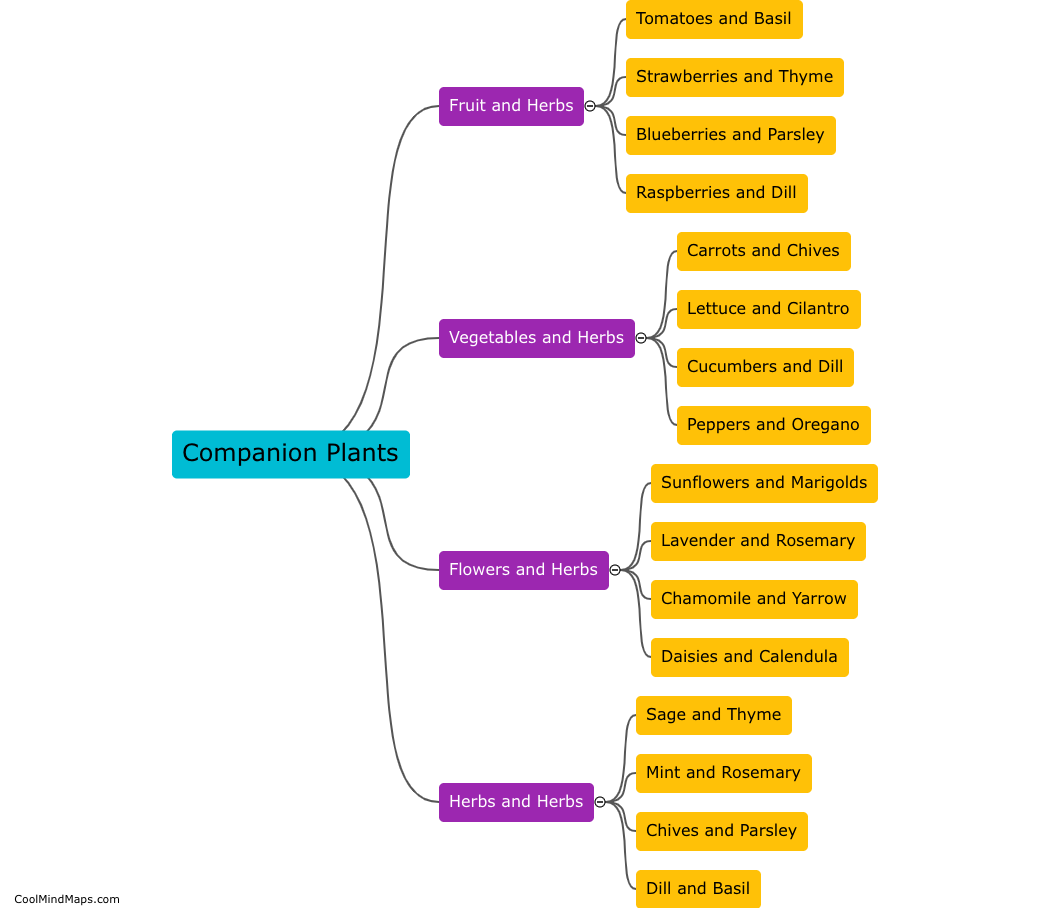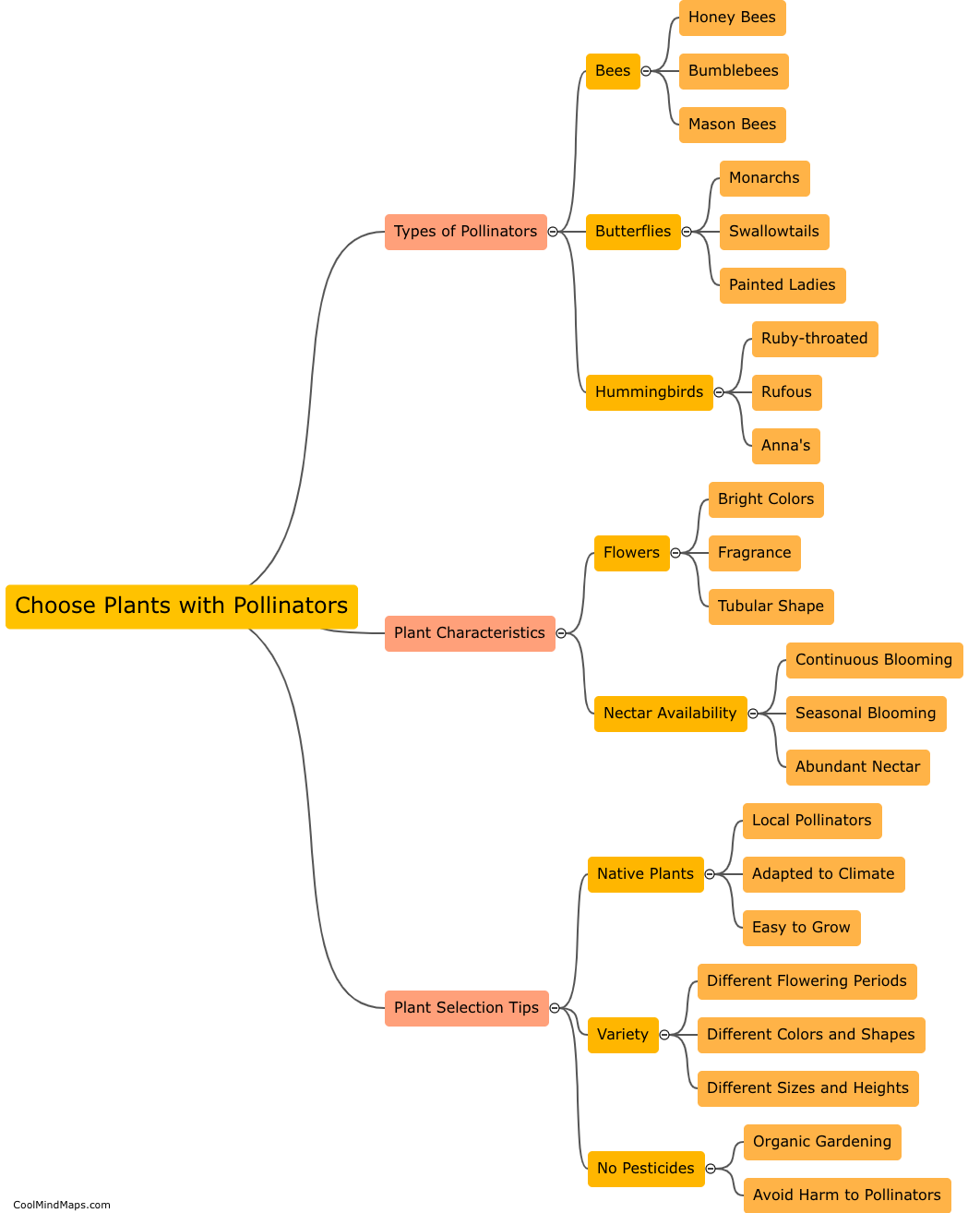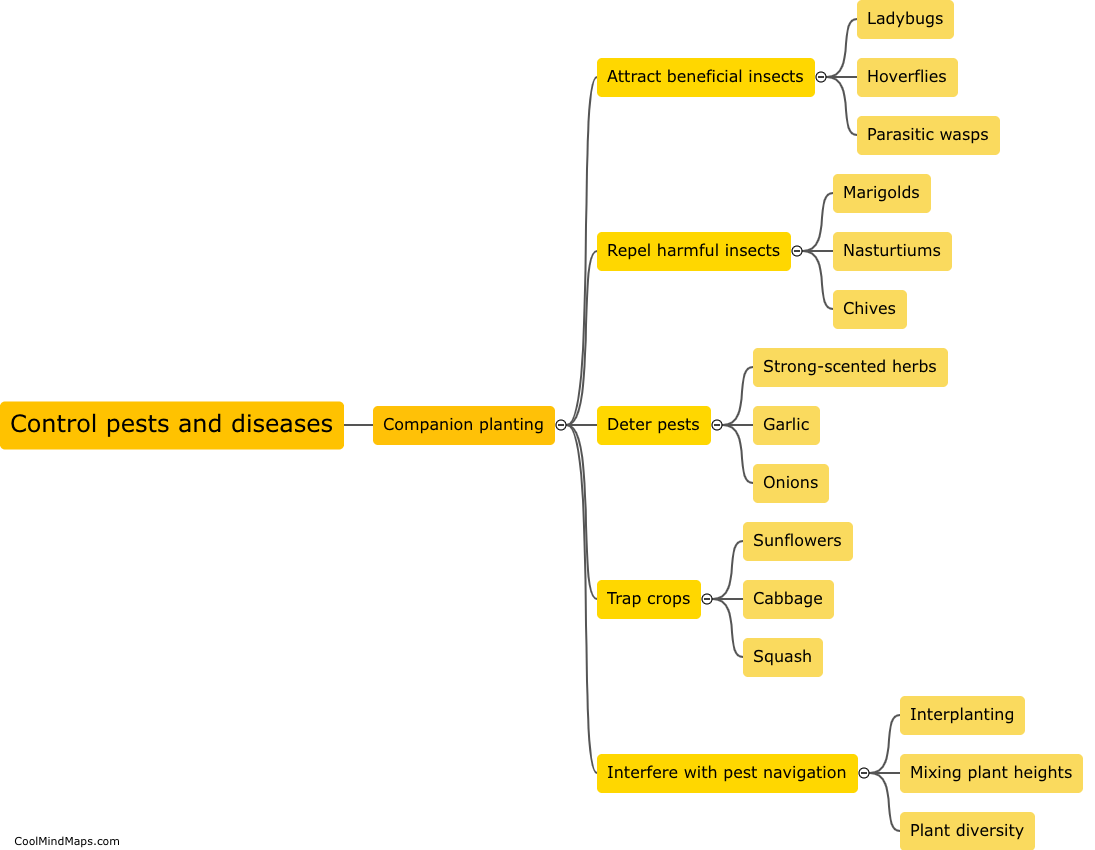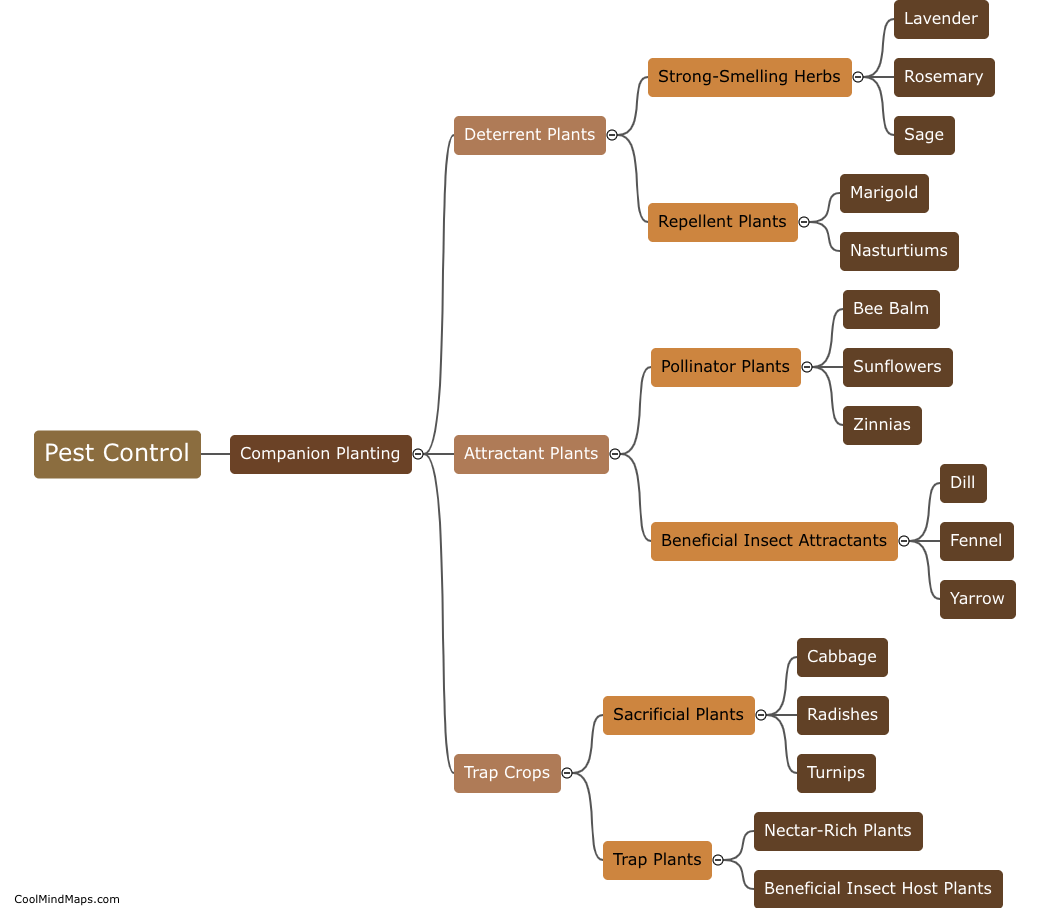Which companion plants work well together in an organic garden?
Companion planting is a strategic gardening technique that involves growing certain plants together to benefit each other's growth, deter pests, and improve overall health. In an organic garden, choosing the right companion plants is crucial for maintaining a healthy and balanced ecosystem. Some popular combinations that work well in organic gardens include tomatoes and basil, where the natural oils from basil repel pests on tomato plants, and beans and corn, as beans fix nitrogen in the soil, which benefits the nitrogen-hungry corn. Additionally, planting marigolds near vegetables can help repel harmful insects, while attracting beneficial ones like bees. Overall, the key to successful companion planting in an organic garden lies in understanding how different plants interact and support each other's growth, ultimately promoting a thriving and sustainable garden.

This mind map was published on 24 January 2024 and has been viewed 86 times.











